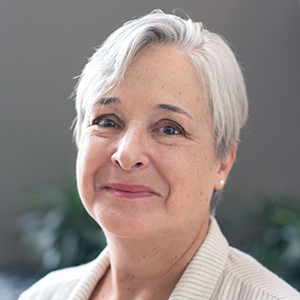ASBMB members elect six to council and other offices
Members of the American Society for Biochemistry and Molecular Biology have elected some new and some familiar faces to leadership positions in the society.
Three new members of the ASBMB Council were elected to three-year terms; they will serve from 2019 to 2022.
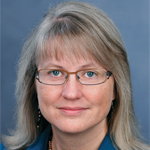 Audrey Lamb is a professor in the department of molecular biosciences, University of Kansas. She studies structural and functional analysis of enzymes associated with iron uptake and the goal of her lab is to understand the structure-function relationships that drive the biosynthesis of siderophores, compounds linked to virulence and pathogenesis in a variety of deadly bacteria.
Audrey Lamb is a professor in the department of molecular biosciences, University of Kansas. She studies structural and functional analysis of enzymes associated with iron uptake and the goal of her lab is to understand the structure-function relationships that drive the biosynthesis of siderophores, compounds linked to virulence and pathogenesis in a variety of deadly bacteria.
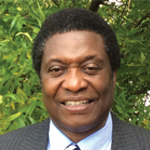 James Ntambi is a professor of biochemistry and Steenbock professor of nutritional sciences at the University of Wisconsin–Madison. His research interest lies in the genetic regulation of metabolism in health and disease. He researches, adipocyte biology, differentiation, hormonal and dietary regulation of gene expression. In recent years, he has used a multidisciplinary approach to unravel the physiological role of the stearoyl-CoA desaturase genes in lipid and carbohydrate metabolism of obesity, diabetes and fatty liver disease. He won the 2013 ASBMB Award for Exemplary Contributions to Education.
James Ntambi is a professor of biochemistry and Steenbock professor of nutritional sciences at the University of Wisconsin–Madison. His research interest lies in the genetic regulation of metabolism in health and disease. He researches, adipocyte biology, differentiation, hormonal and dietary regulation of gene expression. In recent years, he has used a multidisciplinary approach to unravel the physiological role of the stearoyl-CoA desaturase genes in lipid and carbohydrate metabolism of obesity, diabetes and fatty liver disease. He won the 2013 ASBMB Award for Exemplary Contributions to Education.
 Kelly Ten Hagen is a senior investigator and section chief in the National Institute of Dental and Craniofacial Research at the National Institutes of Health. Her lab studies the biochemistry and biological roles of the enzyme family responsible for the initiation of a conserved protein modification (mucin-type O-linked glycosylation) to better understand how aberrations in glycosylation may contribute to disease susceptibility and progression. She is a member of the ASBMB Meetings committee.
Kelly Ten Hagen is a senior investigator and section chief in the National Institute of Dental and Craniofacial Research at the National Institutes of Health. Her lab studies the biochemistry and biological roles of the enzyme family responsible for the initiation of a conserved protein modification (mucin-type O-linked glycosylation) to better understand how aberrations in glycosylation may contribute to disease susceptibility and progression. She is a member of the ASBMB Meetings committee.
Other offices
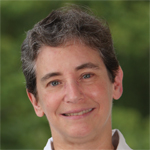 Treasurer-elect Joan Conaway is an investigator and holds the Helen Nelson distinguished chair at the Stowers Institute for Medical Research. She studies the mechanisms of gene transcription and her work helped define mechanisms that regulate initiation and elongation of mRNA transcripts by the enzyme RNA polymerase II. She has previously served on the ASBMB Council and the finance and meetings committees.
Treasurer-elect Joan Conaway is an investigator and holds the Helen Nelson distinguished chair at the Stowers Institute for Medical Research. She studies the mechanisms of gene transcription and her work helped define mechanisms that regulate initiation and elongation of mRNA transcripts by the enzyme RNA polymerase II. She has previously served on the ASBMB Council and the finance and meetings committees.
 Kim Orth was elected to the Nominating Committee. She is the Caruth scholar in biomedical research and holds the Forsythe chair in biomedical science at the University of Texas Southwestern Medical Center. Orth works to elucidate the activity of bacterial virulence factors on the molecular level, providing insights into how bacteria cause disease and how eukaryotic host cells signal in response to infection. She serves on the ASBMB Awards Committee and won the 2018 ASBMB-Merck Award.
Kim Orth was elected to the Nominating Committee. She is the Caruth scholar in biomedical research and holds the Forsythe chair in biomedical science at the University of Texas Southwestern Medical Center. Orth works to elucidate the activity of bacterial virulence factors on the molecular level, providing insights into how bacteria cause disease and how eukaryotic host cells signal in response to infection. She serves on the ASBMB Awards Committee and won the 2018 ASBMB-Merck Award.
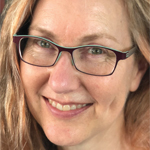 Evette Radisky was elected to the Publications Committee. She is a professor of cancer biology at the Mayo Clinic. Her long-term research focus is on the molecular recognition between proteases and protein protease inhibitors, and her research interests include many aspects of cancer biology, including the role of proteases in tumor progression and metastasis. She previously served on the ASBMB Meetings Committee.
Evette Radisky was elected to the Publications Committee. She is a professor of cancer biology at the Mayo Clinic. Her long-term research focus is on the molecular recognition between proteases and protein protease inhibitors, and her research interests include many aspects of cancer biology, including the role of proteases in tumor progression and metastasis. She previously served on the ASBMB Meetings Committee.
Enjoy reading ASBMB Today?
Become a member to receive the print edition four times a year and the digital edition monthly.
Learn moreGet the latest from ASBMB Today
Enter your email address, and we’ll send you a weekly email with recent articles, interviews and more.
Latest in People
People highlights or most popular articles
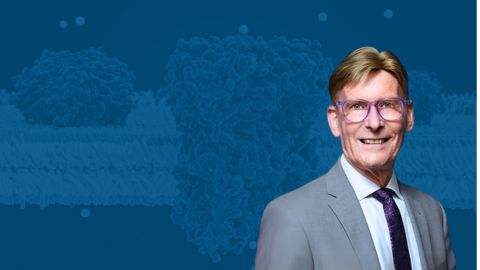
Richard Silverman to speak at ASBMB 2025
Richard Silverman and Melissa Moore are the featured speakers at the ASBMB annual meeting to be held April 12-15 in Chicago.

Women’s History Month: Educating and inspiring generations
Through early classroom experiences, undergraduate education and advanced research training, women leaders are shaping a more inclusive and supportive scientific community.

ASBMB honors Lawrence Tabak with public service award
He will deliver prerecorded remarks at the 2025 ASBMB Annual Meeting in Chicago.
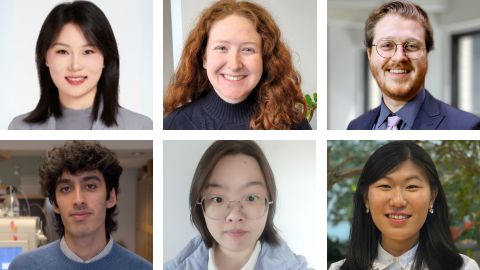
ASBMB names 2025 JBC/Tabor Award winners
The six awardees are first authors of outstanding papers published in 2024 in the Journal of Biological Chemistry.

Daniel N. Hebert (1962–2024)
Daniel Hebert’s colleagues remember the passionate glycobiologistscientist, caring mentor and kind friend.

In memoriam: Daniel N. Hebert
He was a professor at the University of Massachusetts Amherst, who discovered the glycan code that facilitates protein folding, maturation and quality control in the endoplasmic reticulum.

